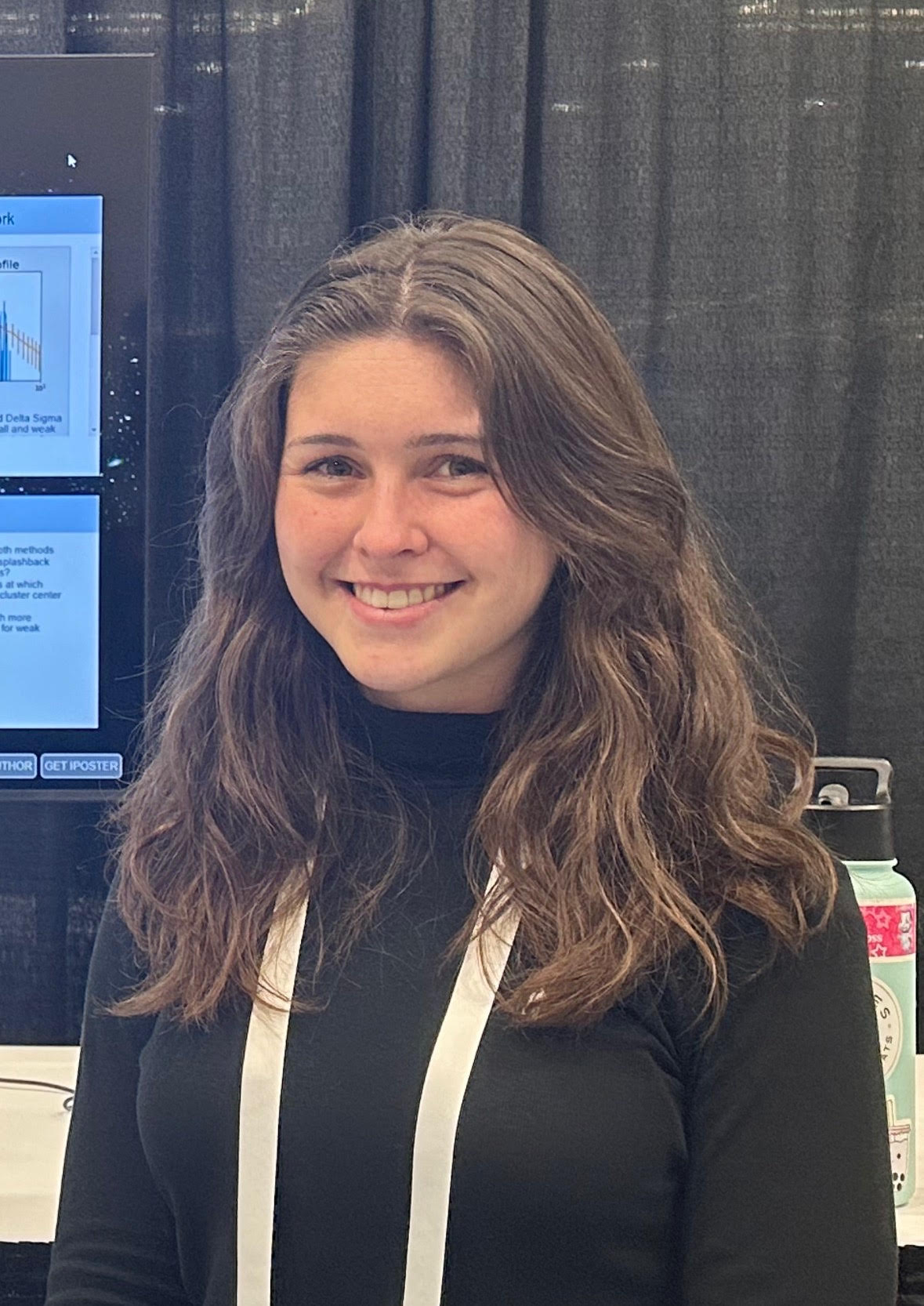Q. What advice can you offer incoming physics students?
A. Explore areas of study outside of physics while at Brown! You may find another department you really enjoy or a course that uniquely shapes your approaches to physics problems. For example, I took a History of Math course in the Assyriology department and discovered a new appreciation for the “basic” geometry and trigonometry behind even fundamental astronomical concepts.
Q. What was your favorite physics course and why?
A. PHYS2100 General Relativity with Professor Anastasia Volovich - this course illuminated the elegant interplay between math and physics that is integral to understanding the Universe. The connection between math and physics I found while taking this course paved the way for my curiosity for relativity and gravitational wave astrophysics, which is what I plan to study in graduate school. This course also teaches the mathematical formalism behind black holes, which is just so cool.
Q. What do you consider to be the most impactful lesson you learned at Brown Physics?
A. The first time you admit you don’t know something and need help will be truly one of the most difficult yet strengthening experiences of your college career. Many of us came into Brown relatively academically self-sufficient so many of us assume that college can be the same. However, learning to seek out and ask for help is a humbling and necessary skill for academia, especially in physics where collaboration is a core element of the field.
Q. What was the biggest obstacle you had to overcome on your journey to obtaining your degree?
A. Imposter syndrome was a very difficult challenge in my physics studies. As a queer woman from the South, I felt like I came to Brown with vastly less knowledge about how to pursue a STEM degree than some of my peers. While imposter syndrome is still a hurdle I encounter as a senior going into graduate school, I found that surrounding myself with a supportive physics community and asking my mentors for guidance has truly eased the burden of my imposter syndrome. The realization that physics concentrators all have a common passion for the workings of our Universe, big and small, and each person has their own path through physics helped ease my anxiety surrounding imposter syndrome as well.
Q. What faculty member made a big impact on your journey and why? Relate a favorite memory.
A. In my first physics class at Brown, Professor Jim Valles shared that, for him, “physics makes math sing.” This expression has resonated with me throughout my time at Brown since I’ve been fortunate to pursue a path in physics that elegantly marries my two passions, math and physics. Prof. Valles’ articulation of the relationship between math and physics opened my eyes to keeping a foot in both physics and math in my career since these two disciplines truly do support each other and make each other “sing.”
Q. Relate a story of your fondest memory with your friends in the Physics Department.
A. Last fall, the Physics DUG and SPS Chapter attended PhysCon in Washington, D.C. Getting to represent Brown and discuss our department’s goals and accomplishments with other universities and colleges was a very proud experience. As a member of the DUG and SPS, it was also impactful to learn what had been successful for other schools that could be brought back and incorporated into Brown’s department and physics community.
Q. What’s next for you?
A. I will be attending Caltech this fall to pursue an astrophysics Ph.D.